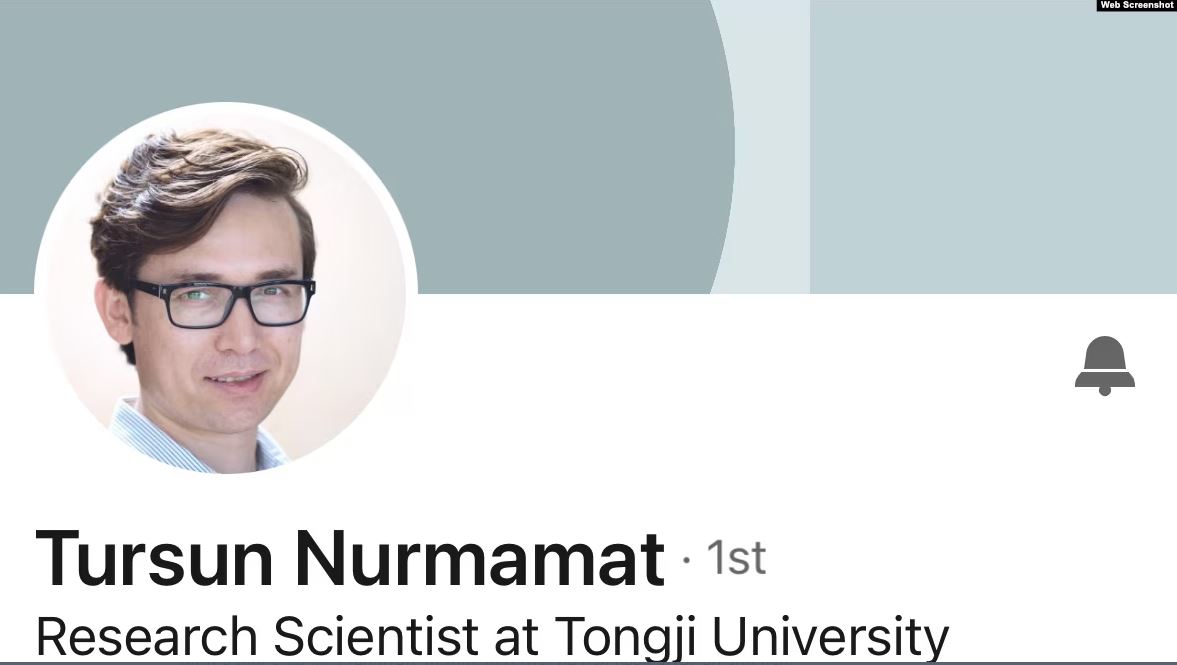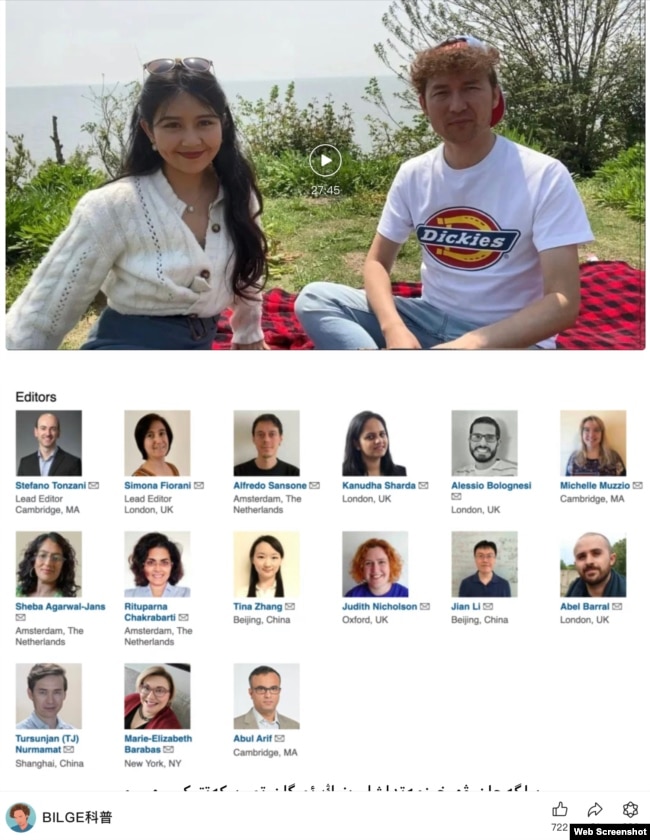A screenshot of part of Tursunjan Nurmamat’s LinkedIn page. Nurmamat, who is from the Xinjiang Uyghur Autonomous Region in northwestern China, specialized in molecular biology and was working as a science editor when he disappeared in China in 2021.
Censorship of Uyghur science
Ayup described Nurmamat's case as a key example of the broader censorship affecting Uyghur science and scientists.
“The Chinese government has targeted Uyghur scientists like [Nurmamat] who have studied abroad and experienced democratic freedoms,” Ayup told VOA. “His work, including translations and science materials in Uyghur, made him a target.”
Ayup noted that by translating and writing extensively in Uyghur about science, Nurmamat directly challenged China's efforts to suppress the Uyghur language in education.
Over the past two decades, Uyghurs have observed that Chinese authorities have gradually removed the Uyghur language from science-related subjects in K-12 schools and universities in Xinjiang.
Ayup also compared Nurmamat's case to that of Tashpolat Tiyip, a prominent Uyghur geographer and former president of Xinjiang University, where Nurmamat completed his bachelor's and master's degrees.
Tiyip disappeared in 2017, four years before Nurmamat’s arrest, while traveling from Beijing to Berlin for a scientific conference. Since then, there has been no information on his whereabouts or the charges against him.
“Even the Xinjiang University website has removed his record from its list of historic presidents, though it still lists a former president who fled to Taiwan in 1949,” Ayup noted.
Dangers of US education
Nurmamat began his doctoral studies in molecular biology at the University of Wyoming in fall 2009, then moved to the University of California for a fellowship, which he completed in 2018.
During the fellowship, Nurmamat traveled to Xinjiang in summer 2017 for a job interview at Shihezi University. He took his wife, Nurimangul, and their U.S.-born 5-year-old daughter, Tumaris, with him to China, in hopes of landing a job back in China after his U.S. fellowship.
“At the airport, he was interrogated by Chinese officials, and the Chinese passports belonging to him and his wife were confiscated. Their daughter, who held a U.S. passport, was the only one spared from the interrogation,” a friend said.
After weeks of questioning, Chinese authorities allowed Nurmamat to return to the U.S. to finish his fellowship but imposed strict conditions: His wife and daughter, an American citizen, had to stay in China.
“He was also required to promise that he would return to China once his fellowship concluded,” the friend added.
Dangerous return
Following the completion of his fellowship in 2018, Nurmamat voiced significant apprehensions about returning to China.
“I’m still really worried. Shihezi University keep asking me to return; but I’m scared to return after my experience in the last summer,” he confided to his friend in the U.S. via a messaging app on April 11, 2018, a screenshot of which was shared with VOA. “My family wasn’t able to join me. I’m hoping they will be able to get their passport back and join me in the U.S.”
Despite these fears, Nurmamat returned to China in summer 2018, aiming to secure the release of his wife, a Xinjiang University graduate. She had been under house arrest since 2017 and was later detained in an internment facility, known as a “vocational training center,” which holds over a million Uyghurs, according to his friend.
“Nurmamat thought that keeping his promise to the Chinese authorities would help free his wife and their U.S.-born daughter,” the friend said.
But instead of returning directly to Xinjiang, where his wife was detained, Nurmamat took a research position at Tongji University in Shanghai. He believed Shanghai would be safer and hoped to eventually reunite with his family. But his efforts proved futile, as he eventually followed the path of other Uyghur intellectuals before him, with arrest and detention.


